The top shelf
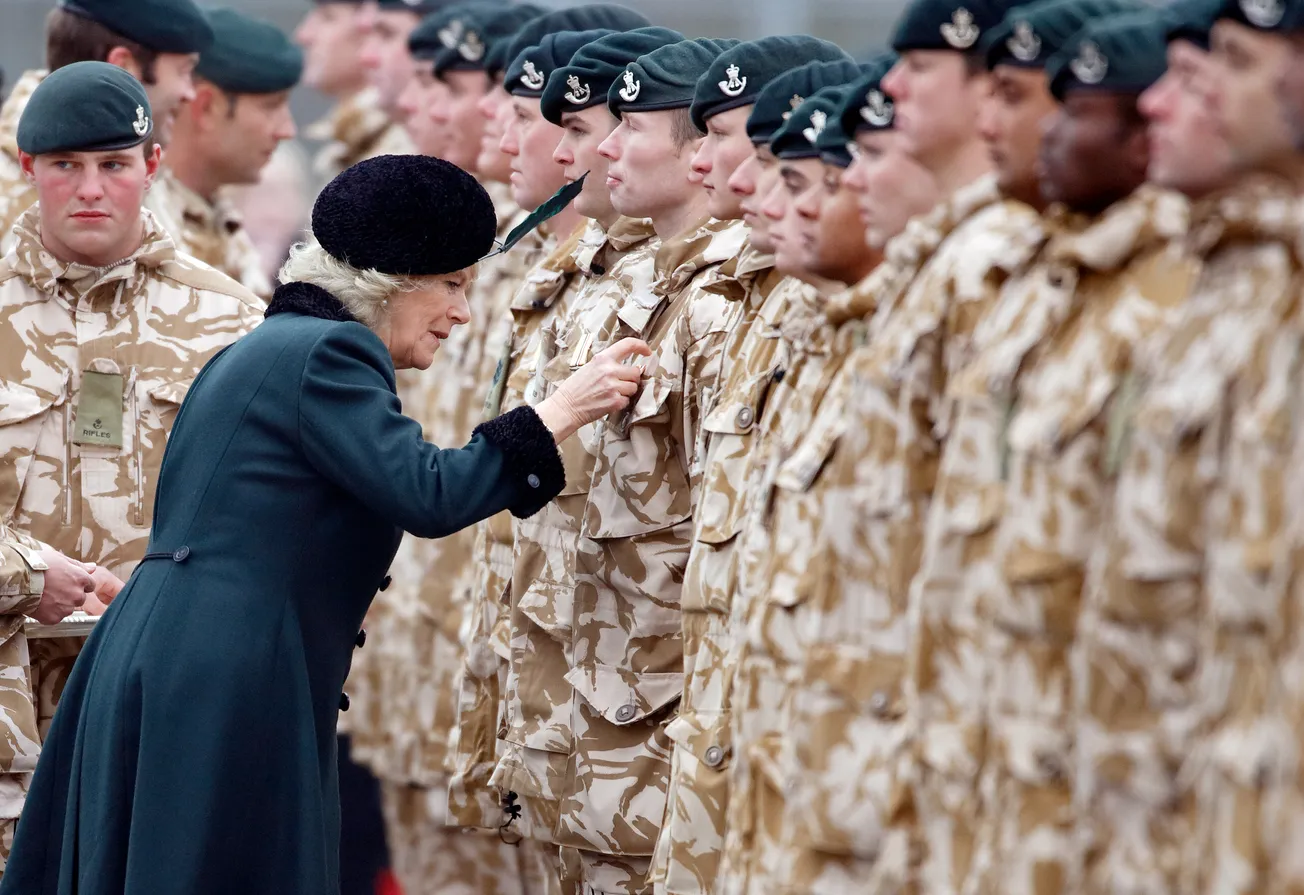
The transition between military and civilian life is like passing between two states that bear no resemblance to each other. For some veterans, it takes a dark turn
Dear readers — a warm welcome to the new members who have joined up this week, and to the dozens of new people on our mailing list too. This weekend’s long read is our first piece by Jack Walton, a great young writer whose work you will be reading more of in the months ahead. Last week, he visited a centre in Anfield that provides the country’s only addiction recovery programme for armed forces veterans. “How am I supposed to stand here picking cans of vegetables off shelves?” one participant asked him, talking about the difficult transition to civilian life. “My head’s still flying round looking for targets who are gonna pop me off.”
The uncaptioned photographs in this piece were provided by Tom Harrison House, and they do not show the men we interviewed.
When Kevin Moore was in the army, therapy was known as “the top shelf”. They would start out on the Wood’s Navy Rum and then work through whatever was left over when it was finished. That was therapy; drinking late into the night until blackout drunk only to get up and go on a five-mile run at 7am.
Of Kevin’s squad of 16 men, three are left. Addiction and suicide, by and large, have claimed the others. As he tells me this — sat in a living room space surrounded by four other veterans in a large residential house in Anfield — tears threaten to crawl up over his eyelids and down his face, but they don’t quite.
The room is serene by design — pot plants and muted colours, affirmative words in frames on the walls — but the air hangs heavy as he speaks. Over the course of an hour, all five men tell me their stories. The details change each time, but the essence remains pretty much the same. “They thought I was dead too,” Kevin says. “And if I choose not to be found, I could disappear and you would never find me.”
After returning from Kosovo, Kevin drank heavily. He was a functioning alcoholic with a successful business, but he was also seven and a half stone wet through, a frequenter of hospital wards and shy of a few internal body parts. Change Live Grow — a criminal intervention voluntary organisation — offered Kevin rehab after an assault conviction.
He gave a set of requirements so specific he was sure they couldn’t be met — a military rehab, three square meals, not in Warwickshire. However, in 2013 a woman named Paula Gunn had founded Tom Harrison House (THH) in Anfield. It met all three criteria. Oh shit, he thought. “I had to do it because I’m a man of my word,” he tells me. Kevin came to THH on 14th November 2018. He has been clean for more than three years.
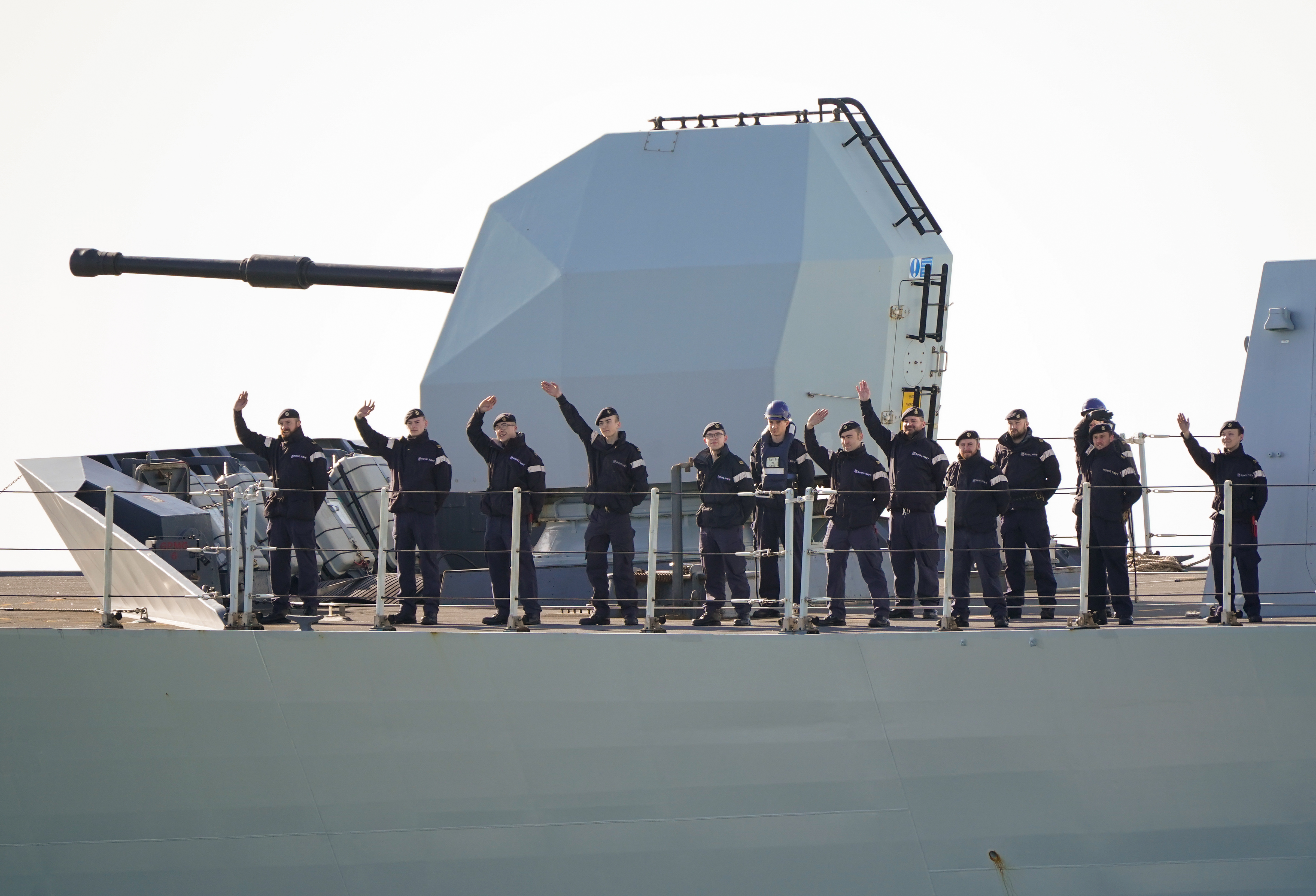
Paula’s grandfather, Thomas William Harrison, served on HMS Barham, HMS Pembroke, HMS Valiant and HMS Excalibur during World War Two. He also helped Paula through her own addiction recovery. Her friend Jacquie Johnston-Lynch, who worked in mainstream addiction recovery, was brought in to help start the centre in his name, the only of its kind in the UK.
A 2018 study published in the British Journal of Psychiatry showed that 11% of men in the UK Armed Forces meet the criteria for alcohol misuse, way above the 4% rate in the general population, although that 11% is an improvement on past studies. “It’s a lethal combination, because a lot of these men in the army are suppressing rage and then they go and mix that with alcohol,” says Rob Beattie, one of the therapists at THH.
In his mind, the military experience produces a certain type of aggravated, compounded psychological damage. “They first experience trauma in childhood or adolescence, whether that's abuse or neglect or whatever. Then they run away to the military and get trauma-d again in action, and that creates complex trauma.”
The programme takes 14 or 15 people at a time and 45% of clients they’ve worked with are not from Liverpool — a function of how quickly word spreads. A lot of the graduates return as volunteers and THH tries to keep them all involved in their ever-expanding community.
Call the cavalry
Frank is a veteran of conflicts buried deeper in the history books than the other men. He left the army after the Falklands War to get married, having joined as a boy soldier when he was 15. He has bipolar with schizophrenic tendencies. His voice is gruff, bronchial.
He had meds but didn’t take them. Drink and drugs were his medicine. His wife eventually kicked him out of the house. Mates’ carpets became shop doorways, which became prison cells and psychiatric wards. He had grandchildren he didn’t know existed.
Very soon, friends weren’t friends. “People always talk about how they lost their friends but you don’t lose them, you drive them away,” Frank says. One night on the streets, Frank noticed a man he had made acquaintances with wasn’t moving. He shook him, but nothing. Frank reached into the dead man’s pocket, pulled out a half-empty bottle of brandy and went on his way.
At one point he was moved into a wet house — a form of supported housing where people are not required to stop drinking. Tom Harrison House staff paid a visit, but he told them to fuck off. “I’m enjoying my life, I've got a great life here,” he thought. “I’m on the piss all day having a laugh and a few drugs. I was happy in my addiction.”
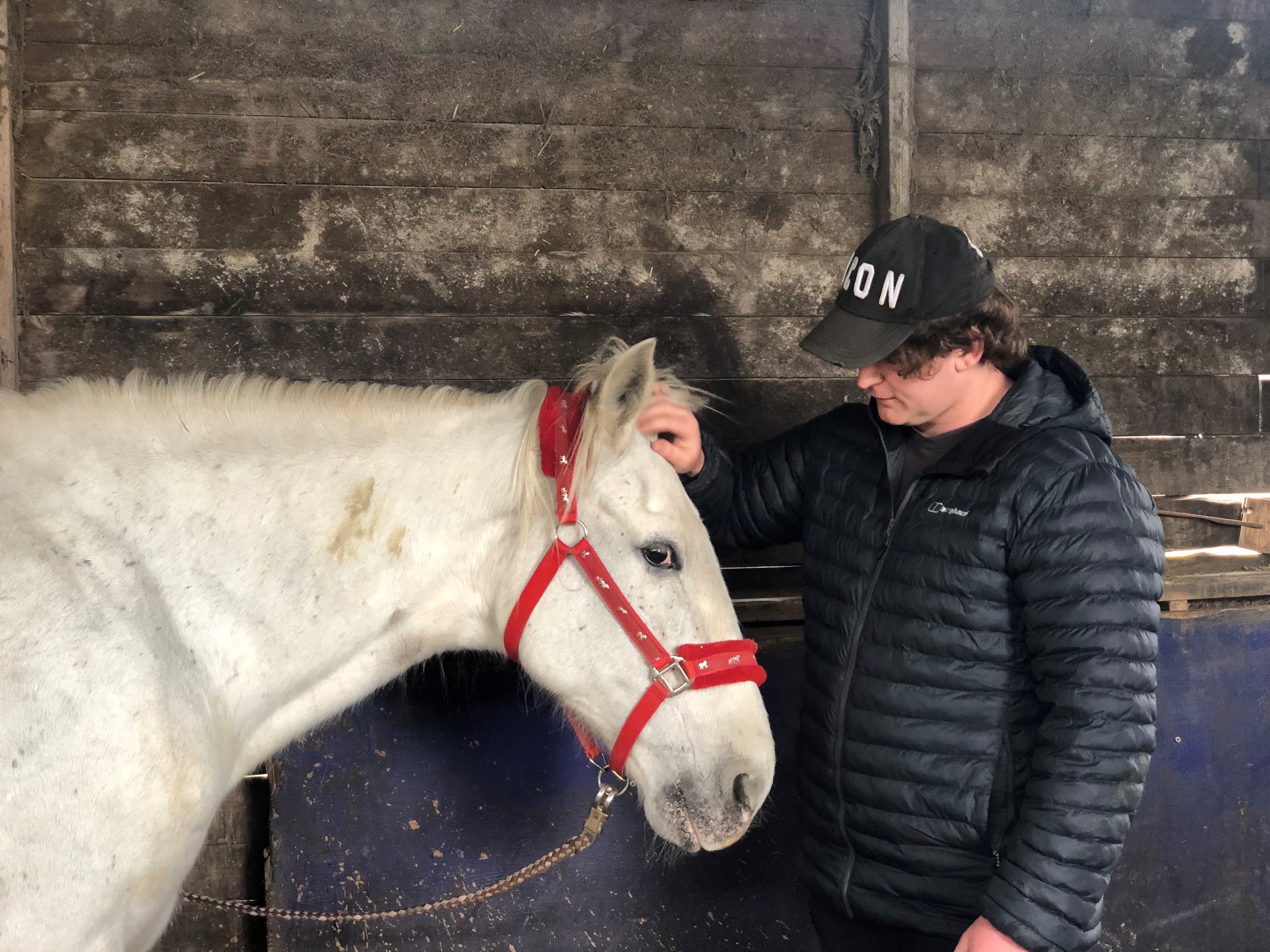
He was told 10 months later that his liver had half a year left at best. When the staff visited again, he decided to take a chance on it. The first question THH staff ask potential clients is what lengths they are willing to go to. If they stipulate, it’s probably not for them. “If you’re just using it for a roof over your head, then this isn’t the place for you,” Frank tells me.
The programme is intensive: 12 weeks, 24/7. It is abstinence-based and clients sign a contract on entry. Upon graduation, many are moved to the Bridge House Project — supported housing for recovering addicts. “We don’t keep everybody,” says Rob. “If people come here and they don’t want to change, then we have a queue of others waiting.”
Frank had to wait seven weeks for a space to open up and he managed to stay clean through that time. All of a sudden, he was getting knocks on the door. “Fancy a drink Frank?” This was odd, because no one shared their drink in the wet house.
At the start of the programme, clients have to stand and deliver their life story, addressing childhood, parents, school, sexual conduct and military trauma. They then construct a pyramid of their life, which is analysed for how significant events precipitated negative core beliefs.
Mission statements are devised, splitting the addict’s self into two categories, the shadow — their personality in addiction, and the goal; their aspirational personality. Rob points to 34-year-old Craig Wright, who reels off his shadow statement on instinct: “I create a world full of chaos and pain by being egotistical, selfish and manipulative. I use violence to gain power and control…” And then his goals: “My purpose in this world is to create safety for myself and others by being accountable, reliable and trustworthy…”
At a later stage, questionnaires filled in by those who have been hurt by the individual's addictions are read out. “It’s a painful process because you’re not hiding behind alcohol, crack, heroin, or cocaine. You have to sit through it,” says Rob. Some people become remorseful, others get angry.
They also employ physical therapies. One of these is equine therapy – spending a few hours a week with a horse, forming a connection. “I thought, how in fuck’s name is a horse going to help me,” says Frank. “But the horse is hurting as well, they’ve had rough times and been mistreated and you just form a bond.”
‘Is everything okay?’
Rob employs the concept of “rock bottom” as a fork in the road to possible recovery. “Addicts are very resourceful and they’re very manipulative,” he tells me. He knows this well because he was one. “Rock bottom,” he describes as being when you’ve run out of resources. No family, friends or money left, nowhere to turn. “You’re left with two ways to go basically — getting help or death. It’s a really dark place to be but it’s also a really powerful place.”
David, who is 41, and suffers from PTSD, remembers rock bottom well. “I was mentally tortured,” he says. In 2018 he put a kitchen knife at his jugular and leant against the wall, trying to gouge himself onto it.
He spent 14 years in the army including two tours of Afghanistan and looks like he could still be there — broad shoulders, low-grade trim. An alcoholic beforehand, his service exacerbated the problem. David came to THH in 2020 after another rehab turned him away. After week six he “threw [his] teddies out the pram” and quit, but returned and started from scratch. But after graduating he lasted two weeks and relapsed.
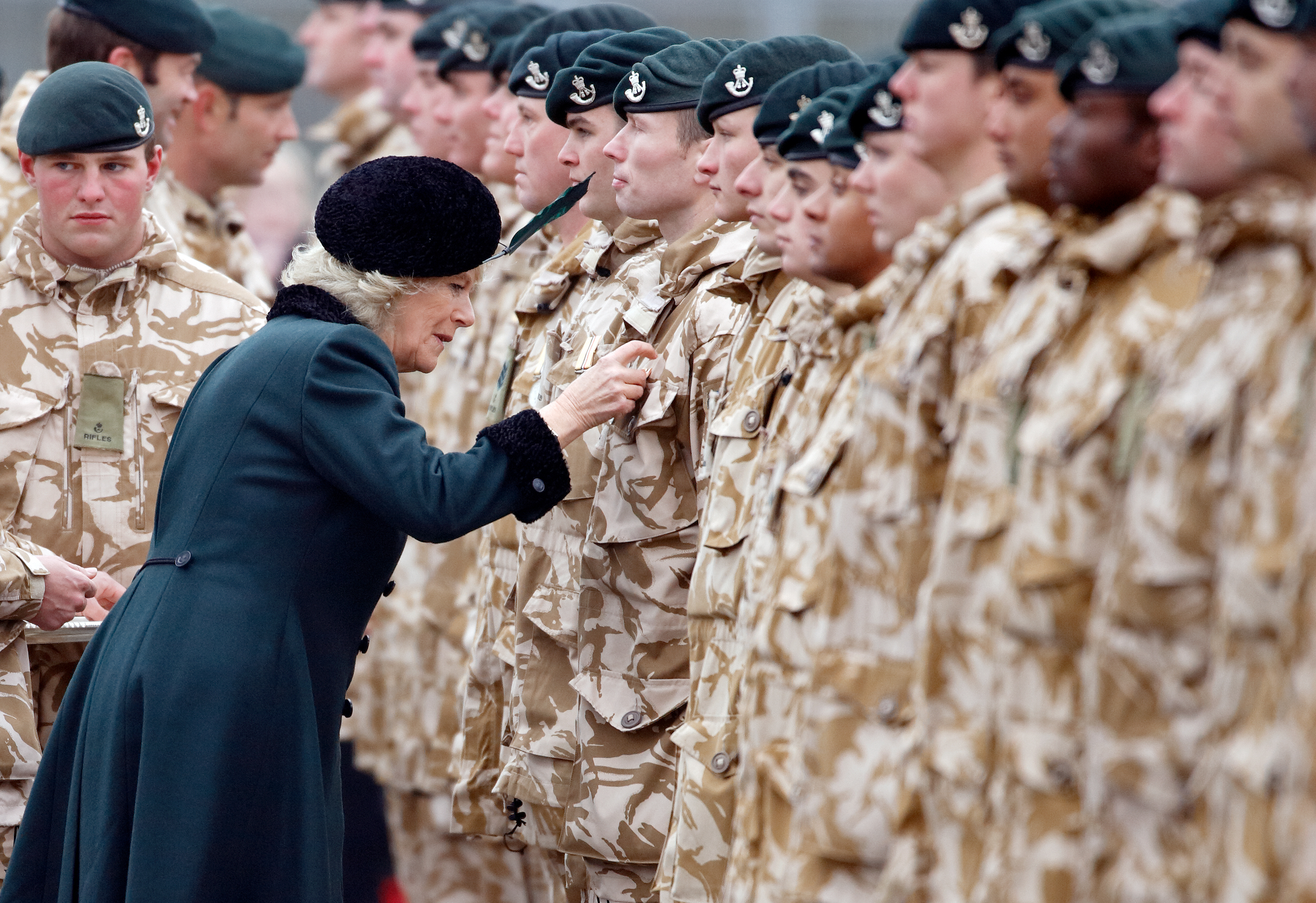
David remembers one time when he got to 98 days sober and his wife was begging him not to drink. His kids had been planning a celebration when he reached 100, she told him. “I don’t believe you have a choice,” he tells me. “I love my kids to bits and I still couldn’t do it.”
“I phoned them in June last year and said I’m done.” He could feel pancreatitis creeping back in. He summoned the strength to come back again for a six-week boot camp and has been clean since. He hopes to return to Hartlepool soon to be with his family, but understands the risk. “If I go back up there and start drinking, I’m no use to them at all.”
The transition between military and civilian life is like passing between two states that bear no resemblance to each other. A world of explosions and bloodshed becomes a world of supermarket aisles and TV dinners — it’s a readjustment all the men feel is under-supported. Kevin experienced this disorientation but didn’t feel he could explain it to those around him. “How am I supposed to stand here picking cans of vegetables off shelves? My head’s still flying round looking for targets who are gonna pop me off.”
John was in Iraq for the war, having previously served in Bosnia, Cyprus, Germany, Poland and Northern Ireland, where he was present at the Omagh car bombing that killed 29 people in 1998. He remembers when he left in 2005, being presented with a check board at the airport which essentially asked: “is everything okay?” Those who said yes were free to go, those who didn’t were taken to a psychiatric hospital. “Everyone just went ‘yep,’” John says. “We’d been in a desert for seven months drinking boiling water, who in their right mind would say anything else, we just wanted to get home.” Within a few years, he was homeless and smoking crack.
Because so many of the men go in so young, the army essentially becomes a surrogate upbringing, but it also circumvents key aspects of growing up. Frank recalls getting into debt post-service and not even understanding things like sorting gas and electrical bills. Emotionally, it can be stunting too. “I’ll often have 40 or 50-year-old men who present emotionally as 14 or 15,” says Rob.
‘Everything revolves around going on the piss’
Kevin recalls an organised day to the Bournville chocolate factory for military families. “We all thought, I don’t want to go and eat fucking chocolate all day,” he laughs. An arrangement was made: the families would eat chocolate, the men would sit in the brewery. “Everything revolves around going on the piss,” David adds. In 2015 he reported to his commanding officer that he had a problem, but nothing was done.
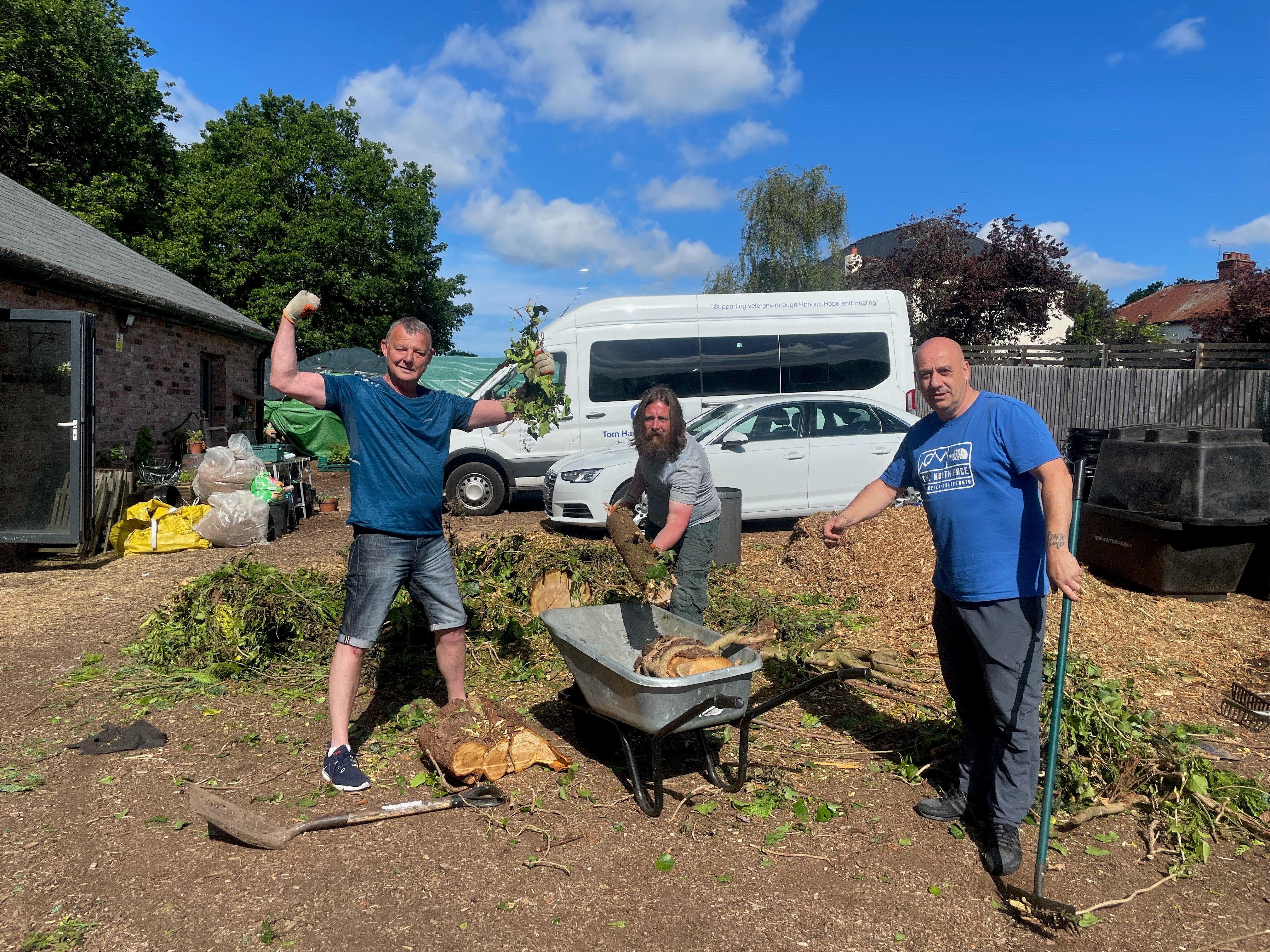
Frank no longer attends the annual regimental reunions. “They all think they’re still 18,” he says. Craig, who went through eight separate psychiatric hospitals, and several courses of SRIs to no avail before THH, now believes he could now attend such an event, such is the strength of his recovery. “But I’d have to question my motivations for being there,” he says.
Frank now has 17 grandchildren after reconnecting with his children and he sees at least some of them every weekend. He hopes to talk to his parents, who are in their eighties, before they pass, but until now they’ve not responded to the letters he has written.
At this, Rob’s eyes widen. He interrupts — “I might be able to help you there Frank.” Apparently, when Frank was on the programme in 2015, a service now run by THH helping to put clients in touch with lost family members was not available. Rob offers to at least make an attempt on Frank’s behalf, they’ll speak afterwards. Frank smiles — perhaps more in gratitude than expectation. “At least I made one good choice in the last 40 years,” he says.
If you’re enjoying our journalism, please do forward this newsletter to a few friends and tell them about The Post. They can sign up to our mailing list here.

Comments
Latest
Michael Heseltine 'saved' Liverpool. Didn't he?
Cheers to 2025
Searching for enlightenment in Skelmersdale
I’m calling a truce. It’s time to stop the flouncing
The top shelf
The transition between military and civilian life is like passing between two states that bear no resemblance to each other. For some veterans, it takes a dark turn